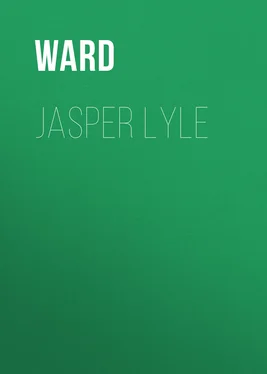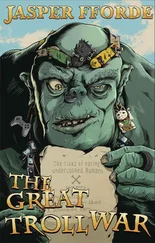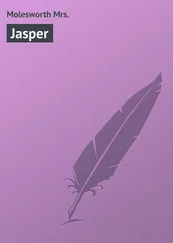Ward - Jasper Lyle
Здесь есть возможность читать онлайн «Ward - Jasper Lyle» — ознакомительный отрывок электронной книги совершенно бесплатно, а после прочтения отрывка купить полную версию. В некоторых случаях можно слушать аудио, скачать через торрент в формате fb2 и присутствует краткое содержание. Жанр: foreign_prose, foreign_antique, на английском языке. Описание произведения, (предисловие) а так же отзывы посетителей доступны на портале библиотеки ЛибКат.
- Название:Jasper Lyle
- Автор:
- Жанр:
- Год:неизвестен
- ISBN:нет данных
- Рейтинг книги:5 / 5. Голосов: 1
-
Избранное:Добавить в избранное
- Отзывы:
-
Ваша оценка:
- 100
- 1
- 2
- 3
- 4
- 5
Jasper Lyle: краткое содержание, описание и аннотация
Предлагаем к чтению аннотацию, описание, краткое содержание или предисловие (зависит от того, что написал сам автор книги «Jasper Lyle»). Если вы не нашли необходимую информацию о книге — напишите в комментариях, мы постараемся отыскать её.
Jasper Lyle — читать онлайн ознакомительный отрывок
Ниже представлен текст книги, разбитый по страницам. Система сохранения места последней прочитанной страницы, позволяет с удобством читать онлайн бесплатно книгу «Jasper Lyle», без необходимости каждый раз заново искать на чём Вы остановились. Поставьте закладку, и сможете в любой момент перейти на страницу, на которой закончили чтение.
Интервал:
Закладка:
Without rising, he whispered from the tent, “May.”
“Does the sir call?” asked the bushman, awakened in a moment, and rolling himself down the mound, on which the store-waggon stood, to the tent.
“Hush!” said Frankfort softly; “some one breathed close by.”
May put his hand to his ear, but all was still, with the exception of an occasional sigh from an over-tired ox or a muttered growl from one of the dogs. The ripple of the river tinkled pleasantly some yards off, but not a breath of wind stirred the boughs. The night was heavy, though the stars were coming out, and it was impossible to say what chance of discord existed among the elements.
May pricked up his ears like a little terrier, and Frankfort and he made a reconnoitring tour round the bivouac; but nothing was to be seen. The bushman retired to his mat and Major Frankfort to his tent.
The Hottentots slept sound, the huge oxen uttered their periodical sighs, the bats flitted about the tent, through which the moonlight began to peep, and at intervals the whine of the wolf came up the valley marring the silence, but too far off to disturb the sleepers and rouse the dogs. Frankfort gave a last glance at the Dutchman’s farm. It looked exceedingly picturesque by that mellow light. The whole scene had an air of peace, little in character with the original possessors of so lovely a soil. Ah! there came the jackal’s cry again, destroying the illusion, and a responsive laugh followed, like mocking echoes from the gibbering hyena.
Chapter Two.
The Bushman
The little bushman, whom we have introduced as the attendant of our English officers, must be more particularly described ere we advance in a story in which he will frequently make his appearance.
The reader will consider his name—May—rather a misnomer for such a creature.
He is about three feet and a half high; his head would be bald, but for a few bead-like tufts of hair, scattered vaguely about the surface. His eyes are long, black, twinkling, and very merry, but his expression is less cunning than that of the Hottentot physiognomy. His nose! where is it? His mouth is wide, but his white teeth redeem this feature from its ugliness; his skin is of the hue of pale gingerbread.
The countenance, however, is far from unpleasing; his voice is odd, with occasional clicks in pronunciation, which May chooses to introduce, notwithstanding his education. The hands and feet are exquisitely small, and the frame lithe and agile as a monkey’s. His costume is copied from his masters; the materials are coarser, but the “wide-awake” hath on him a more jaunty air, the feather a more “knowing” feel, and this is fastened to the hat with a gilt bugle, the gift of some light infantry officer, and much prized by May, who had managed to coax from the same source an old red jacket, which he carries in the waggon-box, and wears on Sundays when they halt in the wilderness.
May is a capital mimic, takes off various members of the Graham’s Town garrison, well-known as oddities; imitates with ludicrous gravity the imposing air of the governor’s brother, and elicits peals of laughter from his Hottentot comrades, when, arrayed in Fitje’s yellow petticoat, he caricatures the dancing of an affected young lady, whom he has watched through the windows of a ball-room. But I must give you May’s origin, or you will wonder how this monkey came to see the world.
Behold a chain of mountains rising abruptly and with a bold sweep across a most lovely wilderness. From the colonial border these mountains look exquisitely, but faintly blue, in the haze which hangs about them. In that busy colony how faint an idea can its inhabitants have of the wild beings that dwell amid those distant solitary fastnesses. In the shelving rocks, in bowery nooks scented with the rich perfume of plants, which in our land a queen would prize in her conservatory, beside the clearest running waters, the little bushmen find their rest among the coneys, the bright-eyed lizards, and the treacherous snakes; brilliant birds flit round them as they lie at ease beneath umbrageous boughs or in cool shady caves, shrouded by luxurious creepers; from the flexile branches of the banian-trees the monkeys peer down upon what some would consider almost their fellow-apes, and on the plains thousands of noble animals in herds are enjoying the gifts of nature, “feeding in large pastures.” An army of elephants is moving through the bush, on a distant mountain; you cannot see them, but you can hear the loud trumpet-cry of their leader giving warning of some intruder’s stealthy advance. In the valley the lions are ranged like soldiers awaiting the return of their scouts, and beyond, far beyond, just where the sunset reveals a spot which has lain in the shade all day, behold the advance-guard of the stately giraffe—two of them: the one with neck outstretched and eye and ear keenly intent, now upon the plain, now on the mountain-side, while his companion crops the fresh green herbage. A cloud crosses the sun, and the giraffes are seen no more; their momentary appearance has drawn the bushmen-hunters from their haunts, to gaze upon the shy and cautious animals.
There go the gnoos, tossing their manes, leaping, plunging, half in play, yet dangerous even to their fellows; see how they wheel round, advancing with eyes glaring through their shaggy forelocks. A herd of zebras are comparatively tune to these eager, restless things; but in greater contrast to the gnoos are the heavy eilands, fat and sleek, fit mark for the hunter’s poisoned arrows. There are ostriches, too, stalking about; and nearer the bushmen’s haunts, but wary of her neighbours, the pauw, or the wild turkey of South Africa, has her brood; far up in the air, between the clear sky and the fertile plain, rises the secretary-bird, with the doomed snake in his beak. The serpent writhes in its new element, swinging to and fro; up! up! above the rocks and sea, the bird swoops higher and higher to drop its prey upon a table-rock; its back is broken. Lie there, powerless, terrible, and fatal, and doomed wretch, till your tormentor returns and finishes the deed begun!
Sunset. The plain is in a glow, except where the mountains cast a shade, and this will deepen, as the shield of gold dips behind them. The little honey-bird, which has been wandering in search of travellers to coax them to the sweet nest it dare not itself invade, goes back disappointed to await the morning splendour; the sprews, on wings of green and yellow, go glancing past to their embowered rest; the homely brown-looking canaries are silent in the golden-blossomed mimosa, the English swallow trills her way back to the mission-house on the other side the mountain range; the few goats possessed by the poor bushmen return bleating to their rude fold, and ere long the wild beasts of the forest and the valley will come boldly forth; the tiger from the dense bush in which he has lain stealthily all day; then the jackal’s cry will startle the children lying on their miserable sheepskins, and the lion’s roar will answer it, rousing the echoes and terrifying the horses and cattle of those who travel in the wilderness.
Such a scene as this presented itself one glowing evening many years ago to the eye of a wayfarer, whose appearance with his pack-horse and saddle-bags, and the somewhat lame condition of the animal he led, gave proof that he had journeyed far and fast. With home almost in sight, he had outspanned his waggon in the valley, and ascending the hills had found that darkness would overshadow his path ere the object he had in view could be accomplished, if indeed it could be accomplished at all. A mist was rising in white wreaths over the plain, till the vapour became concentrated in a hazy shroud floating between the traveller and his people below; his beasts were weary, and would probably fell if he attempted the descent while yet it was light; besides, as I have said, he had an object in view; so he sat down among the shrubs and rocks, through which he had scrambled with some difficulty and much fatigue, and began to ponder on what steps he must take to insure a safe bivouac for himself and his jaded cattle during the night.
Читать дальшеИнтервал:
Закладка:
Похожие книги на «Jasper Lyle»
Представляем Вашему вниманию похожие книги на «Jasper Lyle» списком для выбора. Мы отобрали схожую по названию и смыслу литературу в надежде предоставить читателям больше вариантов отыскать новые, интересные, ещё непрочитанные произведения.
Обсуждение, отзывы о книге «Jasper Lyle» и просто собственные мнения читателей. Оставьте ваши комментарии, напишите, что Вы думаете о произведении, его смысле или главных героях. Укажите что конкретно понравилось, а что нет, и почему Вы так считаете.












